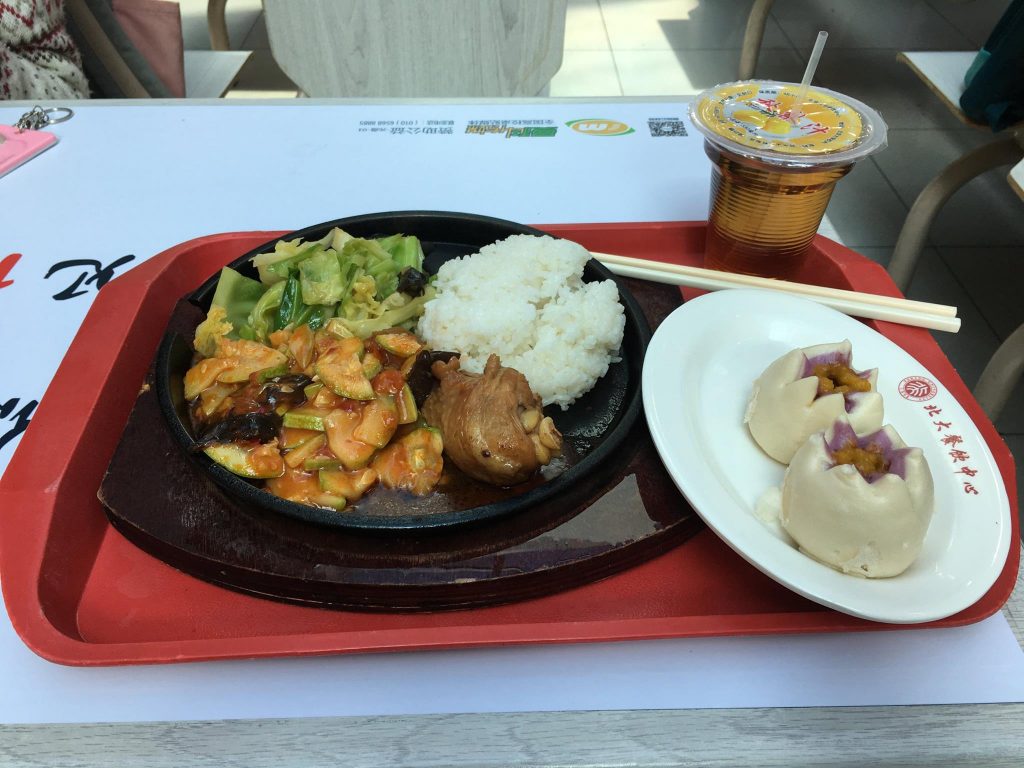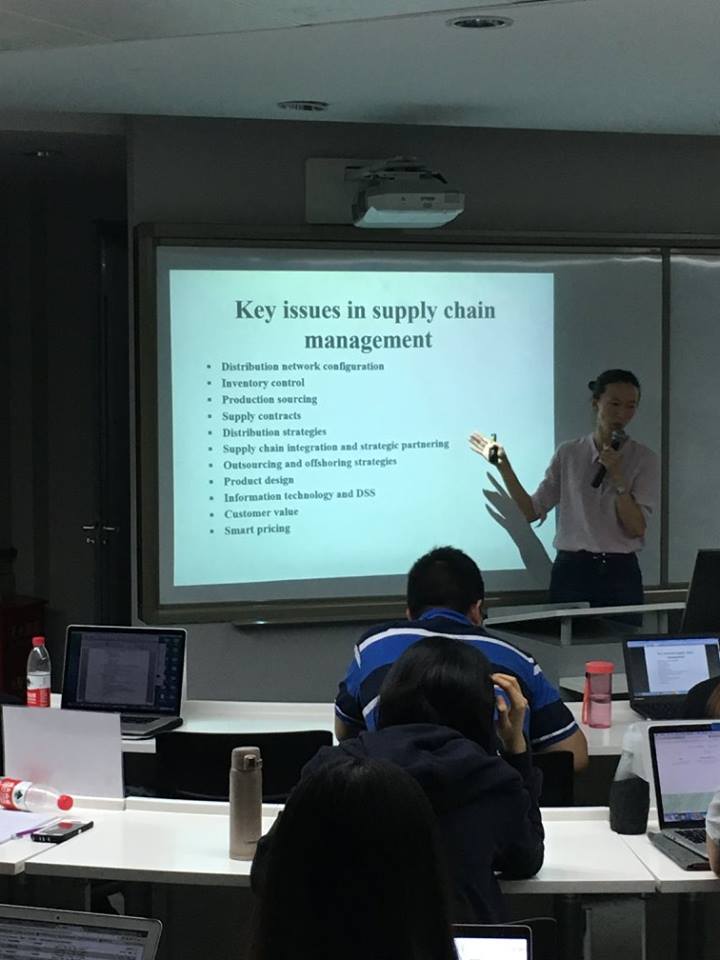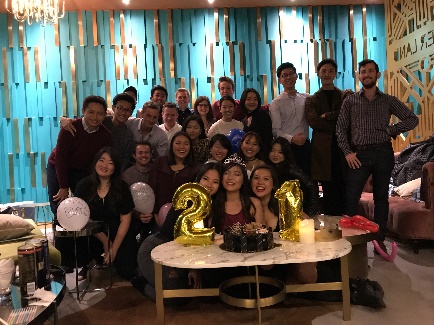A Day in the Life: Beijing
By Ben Weymiller, Foster Undergraduate who is participating in an exchange with Peking University in Beijing, China
Being a semester school, classes at Peking University only meet once a week, and each time for only two or three hours. This allows students to learn more subjects at a slower pace over 15 weeks, compared to the 10 weeks that we are used to at UW. Also, because of the class limitations set on international students, even with a maximum course load, you will only have one day a week with more than one class on average. More likely than not, you will have a day or two without class at all, with several students still enjoying Foster Friday’s abroad. There are three main rough time slots for classes; 9 am to noon, 1-4pm, and 6-9pm. The most common time for a business course is 1-4pm, which is incredibly friendly to those of us who are either late risers or early explorers.

On an average day, I will either enjoy an alarm-clock-free morning of rest, or I will catch up on readings for that day’s lecture. Then I will grab and Ofo or MoBike and head to campus for a brunch at one of the dozen or so cafeterias scattered across the southern half of campus. The cafeteria food here, compared to the infamously nightmarish American cafeteria food, is simply amazing. It is incredibly cheap, the options are very diverse, and the quality is unrivaled. For example, this meal of an iron skillet chicken leg dish, with your choice of two vegetable sides and a large portion of rice, plus some egg yolk lotus baozi, and a sweet tea will cost you about $1.75 USD. As you can see, it is very easy to overdo it here with the food.
After lunch, I roll myself down the street to the Guanghua Business School building for that day’s lecture. The tree hour lectures seem daunting at first, but they are often split into three 50-minute sessions with 10-minute breaks in between, or two 90-minute sessions with a 20-minute break. These longer classes also allow for a slower lecture speed and healthy discussions. During the breaks, students often take advantage of the incredibly nice café located on the first floor of the business building for some good coffee or a sandwich. Following class, students often linger around discussing the next week’s reading or assignment. Then when the cafeteria’s open, many of the international students return to the cafeterias and enjoy a meal of good food and better people.

The nights are everyone’s free time to get caught up on sleep, homework, socializing, or a combination of the three. There is often a group of international students that will go and explore the Beijing nights, with great nightlife in Sanlitun, Wudaokou, and Houhai. Often, as each other’s adopted families and the majority of your classmates, the international students will get together and host birthday parties for each other. The public transportation system, especially the subway, is cheap, extensive, safe, and efficient, allowing students to set off to anywhere in the City right from the eastern gates of Peking University. Didi, which acquired Uber’s operations in China, offers cheap and safe transportation late into the night for people to get home safely.
And the next morning: we do it all again.

